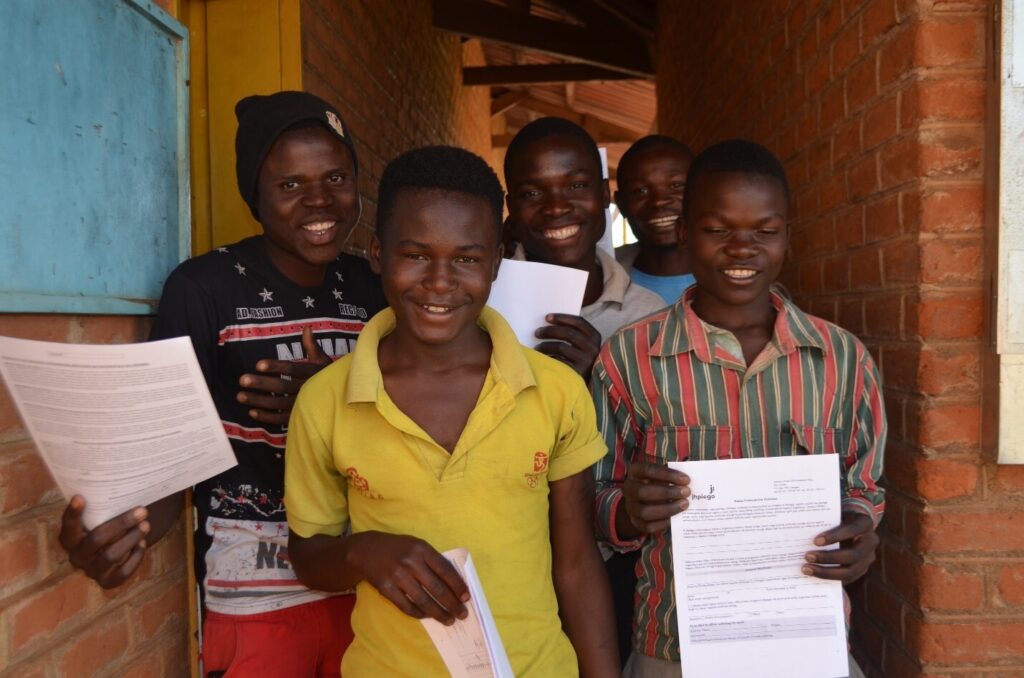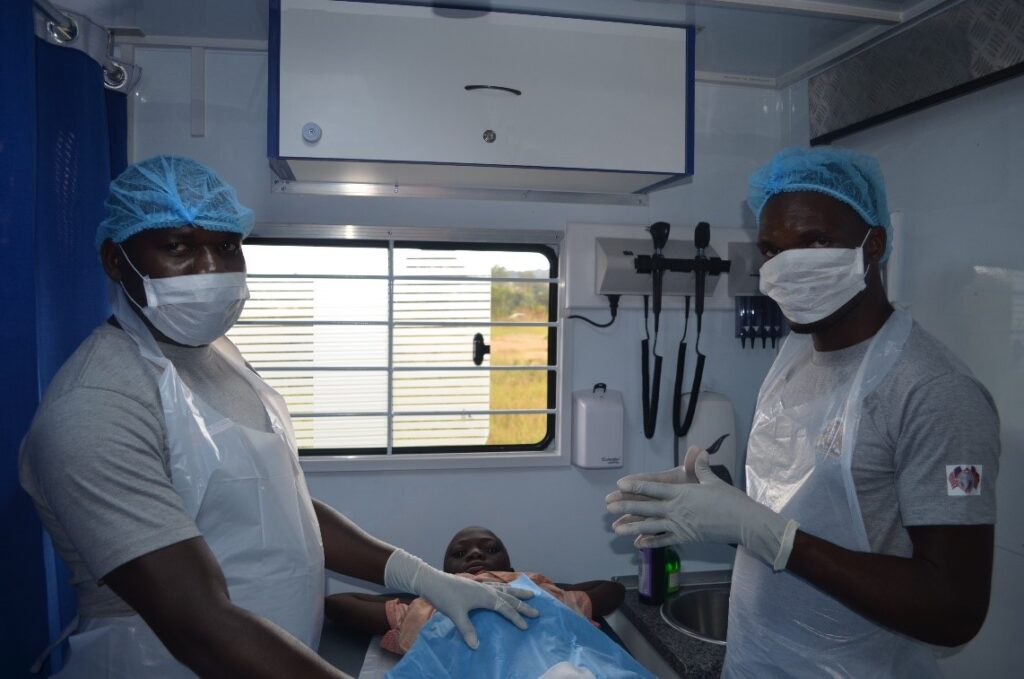Jhpiego has supported the government of Malawi to provide the HIV prevention intervention, voluntary medical male circumcision, to more than 700,000 young men and adolescents.

A problem brought John Siliya to the health clinic in his village outside Malawi’s capital of Lilongwe. The pain he felt while urinating was diagnosed as a sexually transmitted infection, not his first. Following John’s treatment, a community mobilizer took the opportunity to discuss with him a safe, effective HIV prevention intervention—voluntary medical male circumcision (VMMC)—and its health benefits.
Like many, John, 24, was initially skeptical due to cultural myths and misconceptions. However, driven by a desire to take control of his health, John decided to explore the benefits of VMMC, a one-time procedure that reduces the risk of female-to-male HIV transmission by 60 percent.
“It was not easy for me to agree at first. It took some time. After counselling, I made up my mind to go through it,” said John.
Under the compassionate care of Jhpiego’s dedicated health care professionals, John underwent the VMMC procedure. Beyond the medical aspects, the program emphasized comprehensive counselling, ensuring that individuals like John were equipped with knowledge about sexual health, HIV prevention and overall well-being.
After the procedure, John returned to his village where he says, “I took it upon myself to advise my friends and family members to get circumcised. I use every opportunity I can to educate them on the benefits of circumcision.”
For John, the effect has been transformative. He experienced a newfound sense of confidence, not only in his physical health but also in his relationships and aspirations. The reduced risk of HIV infection empowered him to pursue his goals with vigor, breaking down barriers that once hindered his potential.
John is just one of the 701,354 adolescent boys and men in 13 districts across Malawi who have undergone VMMC through Jhpiego-supported services. By addressing HIV prevention at a large scale, Jhpiego’s efforts contribute to a significant reduction in the overall burden of the disease. The reduced transmission of HIV not only safeguards the well-being of individuals but also strengthens families and communities.
As the program continues to expand its reach, the cumulative effect contributes to national public health goals, fostering a generation of individuals equipped with the knowledge and tools to lead healthier lives.
Since 2011, Jhpiego—in partnership with the U.S. Centers for Disease Control and Prevention, the U.S. Agency for International Development and the U.S. Department of Defense, under the U.S. President’s Emergency Plan for AIDS Relief, and Malawi’s National AIDS Commission—has been working with the Ministry of Health (MOH), community leaders and other partners to rapidly expand the provision of high-quality, client-centered VMMC services as a core component of comprehensive HIV prevention services.
The government has committed to achieving VMMC coverage of 80 percent among boys and men aged 10–34 years by 2020, the equivalent of approximately 2.1 million circumcisions throughout the country and 1.8 million in priority districts by 2020 (National AIDS Commission 2014). The MOH and its partners have performed 1.4 million procedures; Jhpiego had provided 51 percent of them by June 2023.

The VMMC programs aim to increase coverage of males aged 15 to 29 years in Malawi as part of its strategy to reduce new HIV infections and save lives. Programs currently operate in more than 50 government health facilities supported by Jhpiego; in districts with high prevalence, VMMC is provided free of charge.
With over 1 million people living with HIV in Malawi and the prevalence estimated at 7.1% in 2022, HIV and AIDS continue to be prominent public health issues in the country. Along with VMMC, the MOH is implementing several other prevention programs, including prevention of mother-to-child transmission and pre-exposure prophylaxis.
Through our commitment to human-centered health care, Jhpiego is catalyzing change that extends far beyond the numbers, leaving an indelible mark on the health and well-being of Malawi. By demonstrating the positive impact on individual lives and the broader community, Malawi sets an example for effective, human-centered health care interventions that can be replicated and adapted in diverse cultural contexts.
Sarah Sakanda is the knowledge and communication specialist in the Jhpiego Malawi office.



